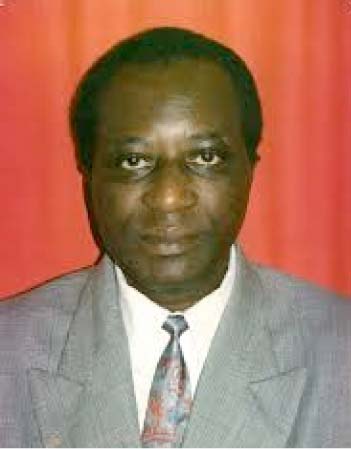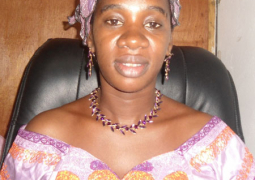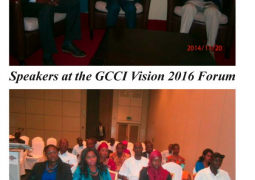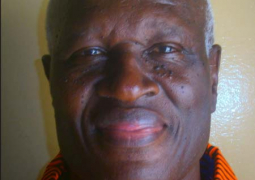
1. I wish to end my contribution to the
draft constitution firstly by expressing profound gratitude to the Commission
for providing this opportunity for public consultation and discussion at group
as well as individual levels. Secondly I wish to make this final summing-up on
some of the points over which disagreements still exist.
Advocates
for non-inclusion of the word ‘secular’ have advanced two reasons for their
position: that the word was not contained in earlier constitutions except the
1997 constitution which they consider flawed; also that the term means
legitimizing homosexuality and gay marriage.
These
two reasons both suffer from serious error and misconception and I am sure that
the Commissioners will be following matters closely. Regarding the first point,
everyone can see the perfect error in the suggestion that only words that have
appeared in earlier constitutions can appear in our new constitution. This
position is not tenable given the desirable fact that constitutions and laws
need to grow in order to meet changing needs and developments in a country.
Another question: is it not contradictory that the same advocates against a
“new word” in the constitution are the same advocates for inclusion of new
words such as ‘Shari’ah High Court’, ‘adoption’, ‘burial’ ‘waqf’, ‘impeachment’
and entirely new provisions and sections? If ‘secular’ is a new word, it can
now be legitimately inserted. What is the problem with that? On the second
point, it is obviously not correct that secular means acceptance of
homosexuality and gay marriage, whether by denotation or by connotation. One
can say that such manifest error can only represent a campaign of
disinformation and misinformation. Furthermore it could be noted that our
national laws already have addressed this point by criminalizing acts of
homosexuality and other acts that are “against the order of nature”, with stiff
sentences ranging from 5 to 14 years. So it is submitted that given our
existing legislations, homosexuality and gay marriage should not be any
concern.
2. It is a safe proposition that the term
‘secular’ being an English word just like all other words in the constitution
(except waqf) can have only one meaning, and I suggest that the meaning could be explained in the
interpretation section (S.312)
In
constitutional and State matters, the term ‘secular’ has invariably meant a
separation between State and Religion. I believe this is the common concept in
most countries around the world, not forgetting our own Sub-region and Muslim
dominated countries as Senegal, Nigeria, and others. Applied to The Gambia it
also means that neither Christians nor Muslims should visit State House,
particularly for festive greetings, to promote their own personal, parochial,
non-State interest. Such visits should receive the fullest media coverage
(print, radio, television) and any gifts distributed should be declared to the
public stating the amounts involved, source of funds (whether Central Bank,
State Owned Enterprises, or Private), and the purpose. Such matters should be
stated somewhere in the new constitution similar to sections on ‘gifts’ to
Public Servants, Presidents and Ministers.
It
would also mean by implication that little mosques and chapels should not be
constructed on State properties and certainly not with State funds as already
asserted by other commentators. Here it should be remembered that Christianity
and Islam are not the only religions practised in The Gambia.
3. ‘Shari’ah’ can be omitted as it does
not govern all citizens: non- Muslims as well as Muslims who do not accept to
be bound by it or by some particular aspects of it; and it is not right, proper
or just to apply national funds towards its implementation. Also its inclusion
would be inconsistent with women’s rights provided in other sections of the
same constitution (5.53 et al) and in our national laws (women’s Act 2010, et
al) especially right to own property and to equality of treatment. Non-Muslim
women in religious mixed marriages could be adversely affected and their rights
violated. To make the constitution more coherent, consistent and just,
religious personal laws such as Shariah should be excluded; and if necessary
could be included instead in properly defined, well-considered Acts of the
National Assembly.
‘Shari’ah
High Court’ creates only more expenses and unnecessary duplication to an
already existing High Court which already has jurisdiction to deal with all
civil and criminal cases. The Superior Courts of the Gambia can always be
appropriately empaneled to deal with cases involving Shari’ah.
Cadi
means ‘judge’, but so also does ‘magistrate’. If we continue to have
‘Magistrates Courts, surely ‘Cadi Courts’ can continue to be maintained instead
of introducing new words such as ‘Shari’ah Courts’ that were never in our
previous constitutions, as some have argued in the case of the inclusion of
‘secular’.
I
thank the Commission for accepting comments and views, and want fellow Gambians
to note that these are mere legitimate discussions, and no one should take them
personally or sectionally to the point of anger or threatening disobedience. We
all are citizens of this country and all have a right to express views
especially when we have been requested to do so. There is strong confidence in
the CRC that with their constitutional and legal knowledge and their superior
drafting skills, they will come out with the best draft of not what people want
to dictate, but of what is true, fair and impartial.
I
thank all fellow Gambians for their understanding and for putting Reason over
Passion.




